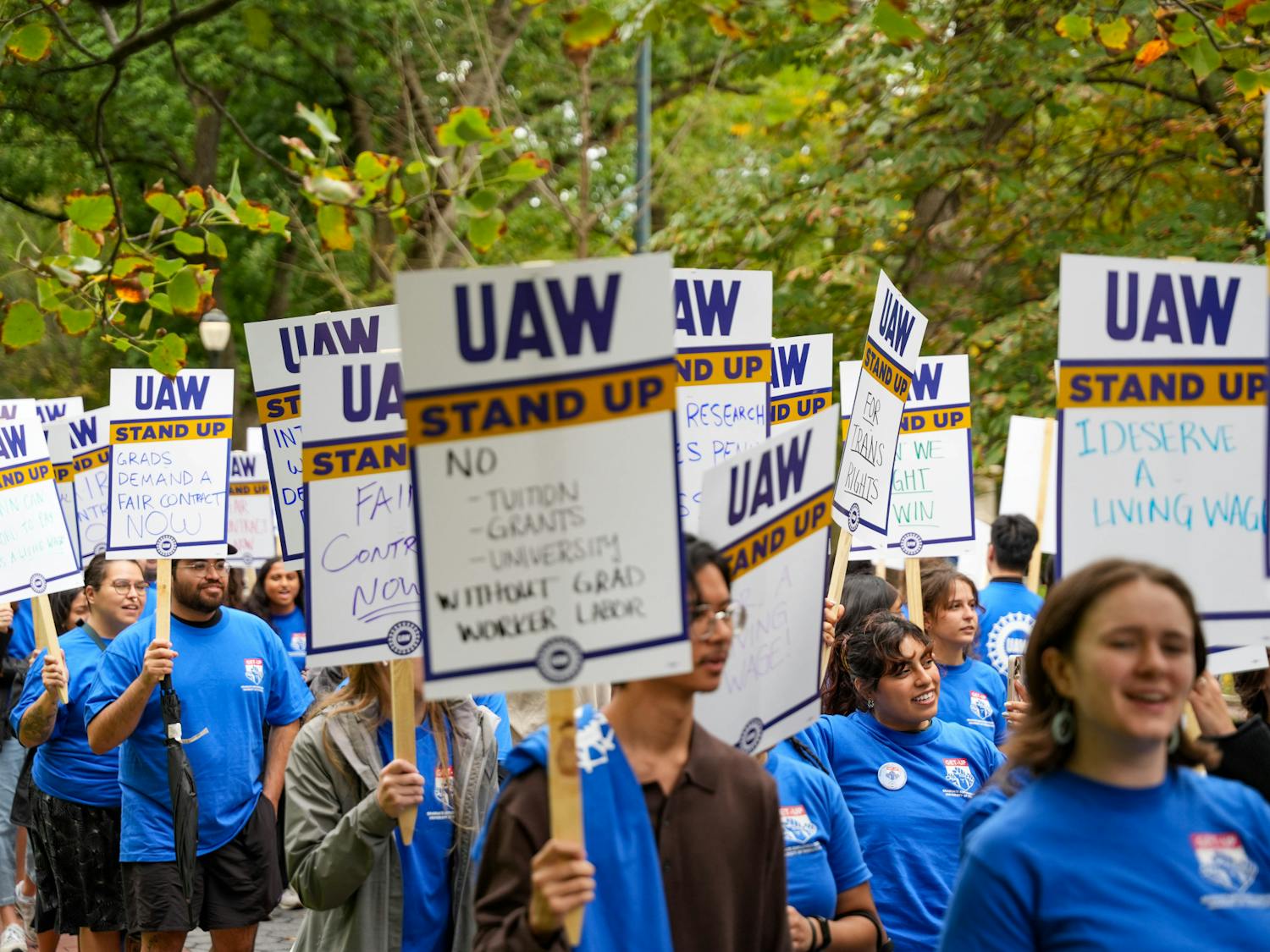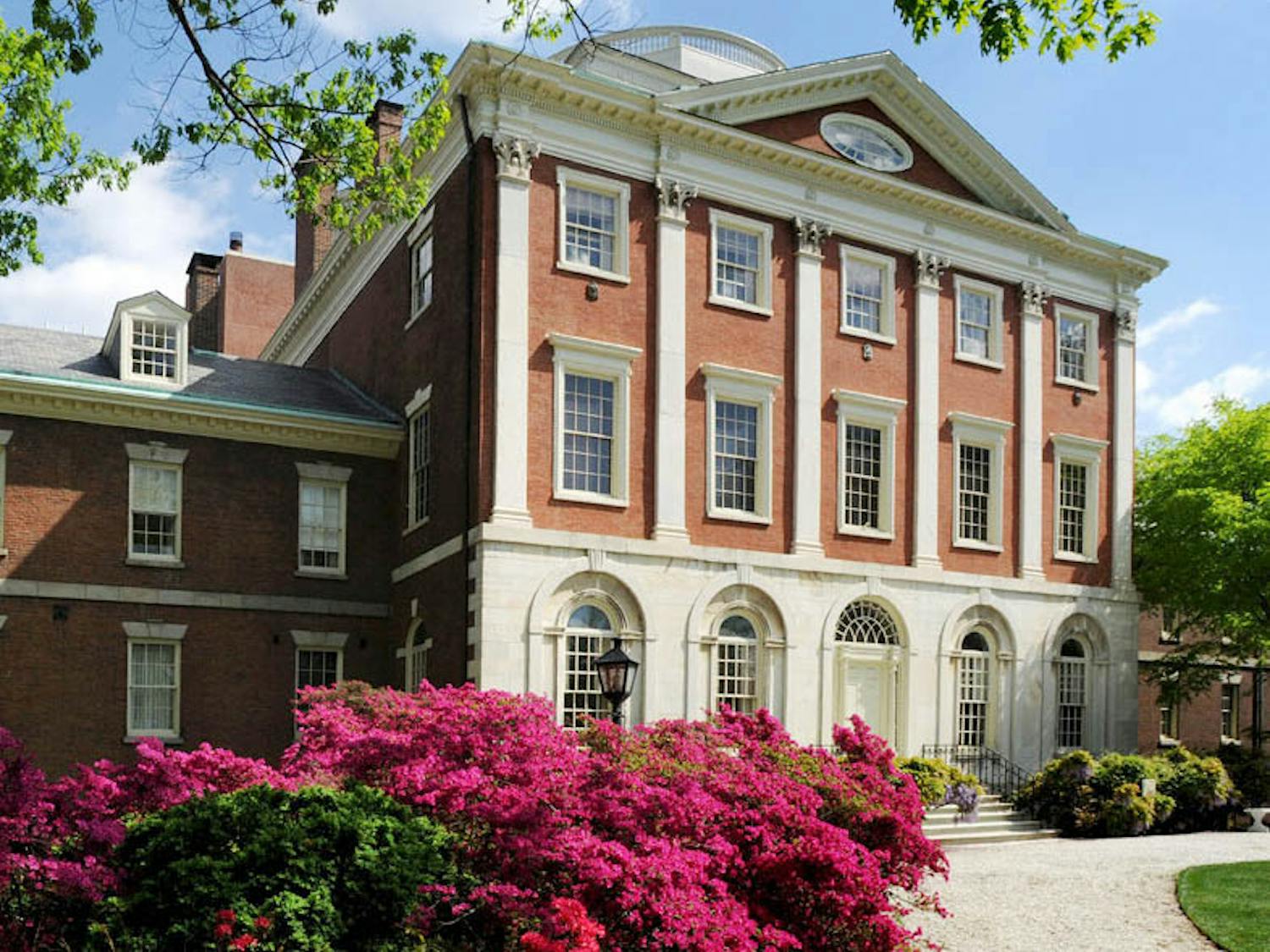Penn will soon launch a guided nature walks program — the first of its initiatives from a wellness idea competition that took place last semester.
The first hour-long wellness walk is taking place this Friday at noon and will start off with a five to seven-minute lecture on health literacy from Community Health and Engineering Librarian Amanpreet Kaur. Attendees will first gather around the Ben Franklin statue on College Green and will then go on a guided tour down the South Street Bridge to the Schuykill River.
During the walk on Friday, Kaur said she will speak about strategies for understanding health information from online and from providers to commemorate the Health Literacy Month of October.
The guided walks program — open to Penn students, faculty, and staff — began from an idea pitched by Kaur and Elaine Weigelt, the community outreach program manager for Penn's Center for Public Health Initiatives. The pair submitted their pitch during the "Your Big Idea" wellness challenge in February, which invited anyone with a PennKey to submit ideas that would improve wellness at Penn. After several rounds of competition, Kaur and Weigelt's idea beat out the 441 other submissions to become one of three winning projects slated to be implemented this semester.
The outline for their project is weekly themed walks led by a different Penn staff member who focuses on a topic they choose each week.
“It’s a lot more than walking and getting your steps in,” Weigelt said. “It’s about creating connections in our Penn community. It’s easy to get siloed or get stuck in your little corner of campus, so I think it’s also a great way to get up from your desk and seat at the library and get some fresh air, meet someone new, and learn something new from someone on campus.”
The other two winning projects are an urban farm in Penn Park — dubbed the "Penn Food Hub" — and a program that encourages area doctors and psychologists to prescribe spending time in nature to treat certain student illnesses, called "Nature Rx." The timeline for these two other projects is still uncertain, said Center for Public Health Initiatives Executive Director Jennifer Pinto-Martin, who oversaw the process for the Big Idea Wellness Challenge. She added that all three projects are funded by the Provost's Office while the "Penn Food Hub" will have the largest budget.
The “Penn Food Hub,” which was inspired by a farm at Yale, will include outdoor planting space and a greenhouse where volunteers from the Penn community could grow plants, fruits, and vegetables, Pinto-Martin said. The food will also be packaged for first-generation low-income students, Pinto-Martin added.
The farm will also include space for visitors to sit and eat lunch and refrigeration to keep food fresh for the food bags, she said.
“It’s more in line with other schools that have done these urban gardens,” Pinto-Martin said. “We sort of looked at what they’ve done and are trying to model ourselves after them.”
The Nature Rx program will train clinicians from Student Health Services and Counseling and Psychological Services to prescribe time in nature in lieu of medications.
“It may sound trivial but there is a symbolic power that resides in an actual ordinance from a clinician,” said Chief Wellness Officer Benoit Dubé, who also led the Big Idea Wellness Challenge. “The program will augment things we already do by educating and reminding clinicians and giving them a tool they didn’t have before.”
Given the success and large number of submissions in the spring for the “Your Big Idea” challenge, Dubé said Penn will launch the challenge again in Spring 2020.
“We need to capture this momentum,” Dubé said. “There’s so much energy and drive and creativity. We have to build on this.”









